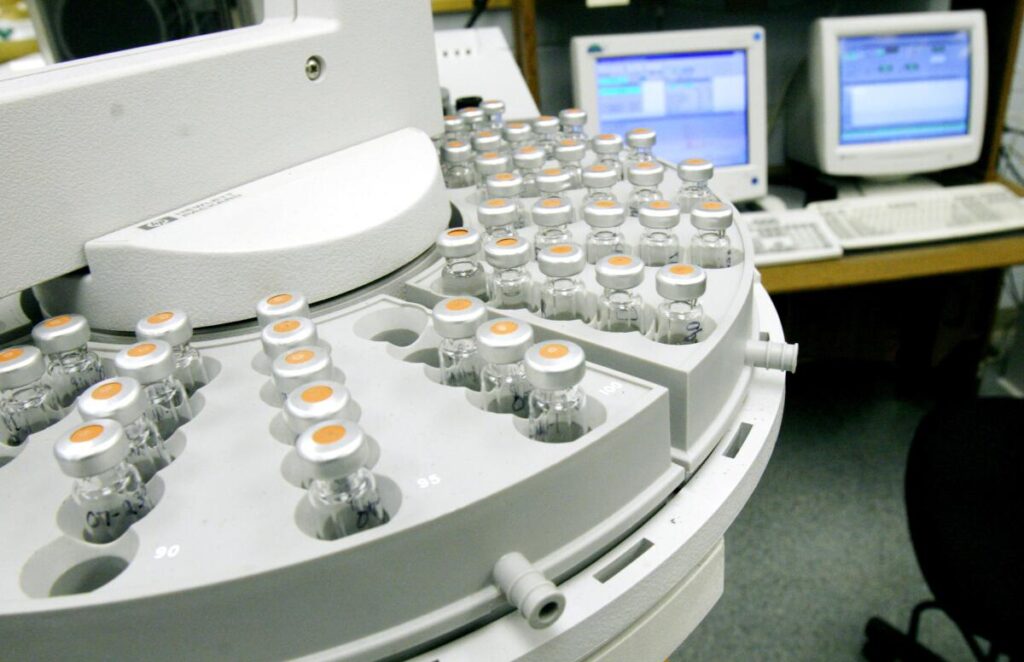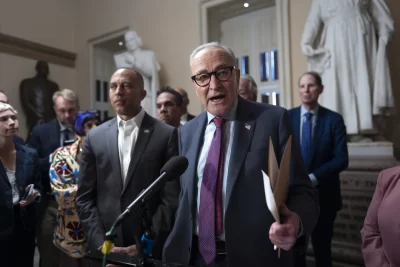
Incomplete homicide autopsy reports have continued to pile up in Mississippi – despite tough-on-crime talk by state leaders ahead of the Nov. 7 general election.
Police officers and prosecutors rely on medical examiners’ autopsy reports to investigate violent crimes and hold perpetrators accountable. Families look to the reports to make sense of a loved one’s death. Without death certificates, families often have to wait to collect insurance and settle the deceased’s affairs.
Delays in completing autopsies of the dead remain an ongoing problem.’
The National Association of Medical Examiners, the office that accredits U.S. death investigations offices, dictates that 90% of autopsy reports should be returned within 60 to 90 days. Homicide autopsies in Mississippi continue to lag behind national standards as crime has remained a flashpoint in the state legislature and campaign trail.
Republican Gov. Tate Reeves, who is running for reelection, makes a point of his commitment to law enforcement in public speeches and on the campaign trail.
In 2022, an AP analysis based on state data and documents found that Mississippi’s system has long violated national standards for death investigations, accruing a severe backlog of autopsies and reports. Moreover, Mississippi has the highest homicide mortality rate in the country, according to the most recent data from the Centers for Disease Control and Prevention.
Mississippi Public Safety Commissioner Sean Tindell has called the backlog “unacceptable” and said he’d instituted a policy requiring all autopsy reports to be completed within 90 days.
Tindell, a former judge who was appointed commissioner in 2020 by Reeves, said in August that his office had completed a “decade-old autopsy backlog in record time.”
But records obtained by The Associated Press show that as of Oct. 1 of this year, Mississippi had 51 homicide autopsy reports that were incomplete for longer than 60 days; and 45 autopsies pending after more than 90 days. Three other autopsy reports for 2023 took over 90 days to complete.
Democrat Brandon Presley, Reeves’ opponent for governor in next month’s general election, has implied Tindell should never have been appointed.
“It’s not rocket science to want someone who has worn a badge to run the state’s largest law enforcement agency,” Presley said on the social media platform X, formerly known as Twitter. “Unlike Tate Reeves, I’ll have professionals running agencies, not cronies.”
Tindell responded on the same social media platform by saying Presley “isn’t just attacking me … He’s attacking law & order.”
Tindell’s spokesperson did not respond to an emailed list of questions or phone messages. But Tindell has said the state forensics laboratory and medical examiner’s office suffered from a lack of funding.
At a campaign event Monday, Reeves said the backlog reached back as far as 2009 and that it shouldn’t be blamed on Tindell.
Jody Owens, district attorney for Hinds County, the largest county in Mississippi, said autopsy reports for homicides in his jurisdiction were still rarely done within a 90-day window.
“That’s just not where we are,” the Democrat prosecutor said. “We are nowhere near 90 days. We have autopsies that have still been pending, sometimes for years.”
Delayed autopsy reports create bureaucratic hurdles for prosecutors and defense attorneys. Reports can help determine whether a death was an accident, a suicide or a homicide. They can shed light on whether a person accused of murder acted in self-defense, with stark implications for both the accuser and the accused.
“You can’t make a (plea) offer without an autopsy report because it establishes the manner and cause of death. Without having that, you really can’t move a case,” Owens said. “States like Mississippi are safest when autopsy reports are completed within 90 days. It not only protects the defendant’s rights, but also the state’s obligation to give victims their day in court.”






